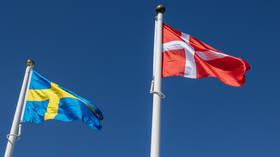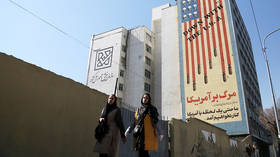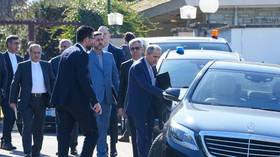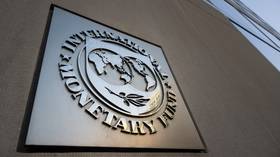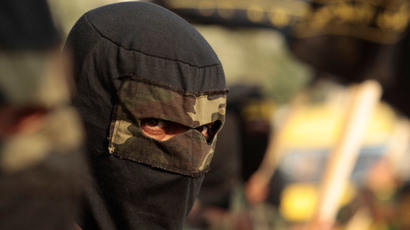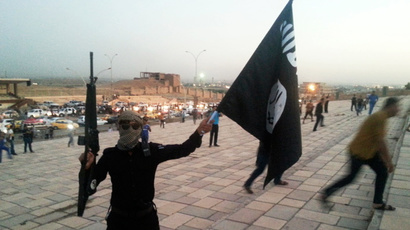UK will not pay ransom for British hostage held by ISIS – Cameron
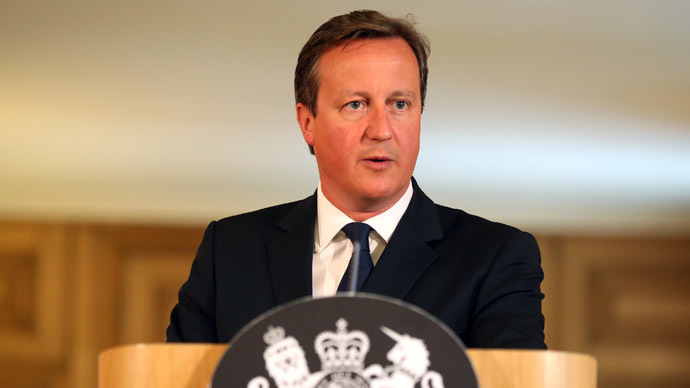
David Cameron has urged fellow world leaders at the NATO summit that they should not pay ransoms to terrorists who kidnap their citizens. The British PM warned that such pay-outs would fund more terrorism against the West.
His message follows a threat issued by the Islamic State (IS, formerly known as ISIS/ISIL) that the captured British aid worker, David Cawthorne Haines, could be its next victim. IS has threatened to kill the British hostage unless US air strikes on its positions in Iraq stop.
Cameron delivered the warning after stating Britain will not pay for the release of Haines.
The British prime minister made his case at a conference on Thursday dedicated to building a unified international alliance against terrorism in the Middle East. “There is no doubt in my mind that the many tens of millions of dollars that ISIL has raised from ransom payments is going into promoting terrorism,” Cameron said.
Referring to a statement signed by the G8 last year opposing ransom payments – which apparently has been breached in some cases – Cameron said: "What matters is not your signature on a declaration, but not letting money be paid to terrorist kidnappers because that money goes into arms, it goes into weapons, it goes into terror plots, it goes into more kidnaps."
"It is utterly self-defeating. It is worse than self-defeating, it is actually a risk to us at home," he said about ransom payments.
The agreement, set up at last year’s G8 summit, meant that all G8 members would not pay ransoms to terrorist kidnappers.
Cameron condemned governments that chose to pay ransoms, saying: "I am in no doubt that those countries that have allowed ransoms to be paid, that has ended up with terrorist groups – including this terrorist group – having tens of millions of dollars that they can spend on kidnapping other hostages, on preparing terrorist plots, including against us here in the UK, and in buying arms and weapons to wreak havoc."
He said that the policy was not based on a lack of sympathy, and the British government does everything possible to free hostages.
Cameron added that despite being difficult to hear, he is “absolutely convinced that the policy of not paying ransoms to terrorists for kidnaps is right."
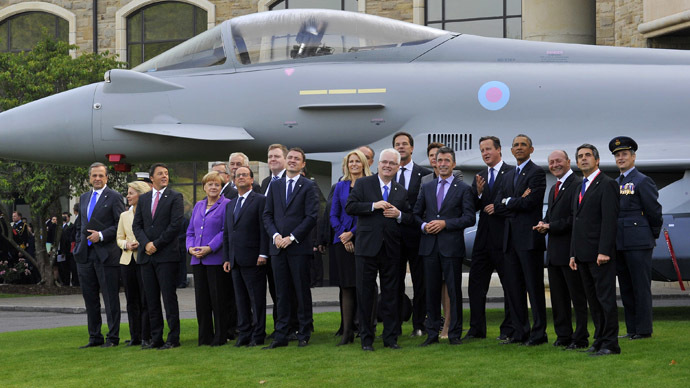
The Islamic State, which has seized large areas of Iraq and Syria and declared a new caliphate – or Islamic state – has allegedly beheaded two US hostages in recent weeks.
The Guardian reported that Britain, probably through intermediaries, might try to find a way to negotiate the release of Haines without having to pay any money to the kidnappers.
Other EU countries allegedly paid ransom to rescue their citizens
At least three EU countries, including France, Spain and Italy, have reportedly paid ransoms to rescue hostages.
When Haines was captured last year at the Atmeh refugee camp in Syria's Idlib province near the border with Turkey, he was taken along with a fellow aid worker, Federico Motka – an Italian. Both men had been working for the French aid organization Acted, assisting refugees in the north of the country. Motka was released last May, raising questions as to why IS militants chose to free him and keep Haines. Since then, two other Italian aid workers have been kidnapped in the country.
Meanwhile, two Spanish and four French journalists have been released this year. German media reported that $18 million had been paid for the four French citizens, although the French government denied this. The Élysée Palace said that "Hollande has said it is a very important principle that hostage-takers should not be tempted to take others."
A German national was released by IS in June and German media reported that a "substantial" ransom was paid, although the German government denied this.
A month before, two Spanish journalists were also freed by the jihadist militants. A foreign ministry spokeswoman in Madrid refused to comment on whether any ransom was paid. Her government, she stressed, uses "maximum discretion" when dealing with kidnappings.
It is thought that as many as two dozen westerners, mostly aid workers and journalists, are being held by opposition groups in Syria.
More than 150 people have been kidnapped by terrorists over the last five years, 13 of whom were British. The UK government estimated that terrorists and other extremist groups had collected at least $60 million in ransom payments over that period.




